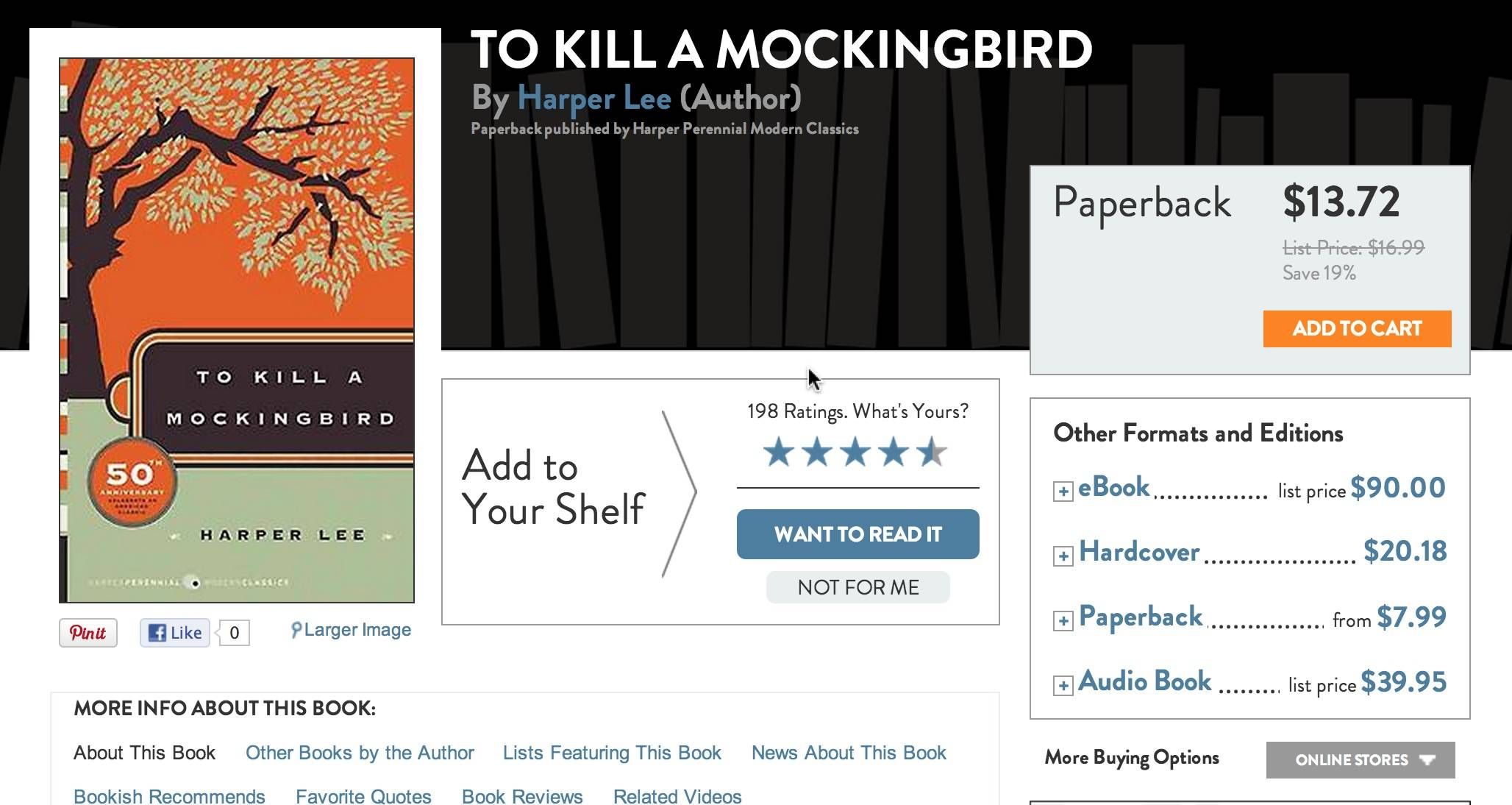Look and Feel
Buying
Recommendations
Reviews
Editorial Content
Bookish has an editorial staff to write, contract, and otherwise provide editorial content to supplement the site’s core mission to sell books. Elizabeth Gilbert’s response to Philip Roth was a provocative piece to have at launch, and Bookish’s connections to the major publishers and their stables of big name authors might offer it some ability to differentiate itself.
Social Integration
Bookish relies on Facebook for its social component, though it’s easy enough to disable it from having much access to your Facebook profile. I would imagine that readers interested enough to integrate their reading lives with a social media network have already made their choices, so I can understand why Bookish isn’t pushing these features just yet.
Conclusion
Bookish, and publishing in general, seems to think that “discoverability” is a problem for readers–that readers have a hard time finding books that interest them. But I’m not sure that’s a problem that readers, the ones who currently buy books at least, actually feel. In my experience, most readers have more than enough books on their radars and to-be-read piles. (In fact, I think many readers, this one included, would be interested in an online bookstore that does more with fewer titles.) In short, publishing has a great reason to make Bookish, but readers don’t have a great reason to use it. It will take a significant, sustained push from publishing (and not just those backing Bookish) and traditionally published authors for Bookish to thrive. And while I’m not sure it’ll happen, I think it’s a project that publishing had to try.
